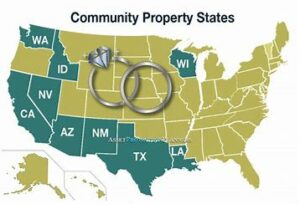I divorced a while ago and have since moved forward in my life. During my divorce process, I learned a lot about divorce lawyers, the court proceedings, and what to do at each stage. I wish I had this list of questions to ask a divorce lawyer when first meeting.
The overwhelming feelings after you find out or ask for a divorce can lead to misguided directions and well-meaning, ill-advice from friends and family.
Before we get to interviewing the divorce lawyer, we must understand your goals. How do you want your divorce to be handled and what factors might come up in the divorce process?
What to ask yourself before interviewing divorce lawyers?
These questions will help you to determine what style of lawyering you want to engage with during the divorce process. It’ll also help you to define the kind of service you expect from your divorce lawyer.
Questions to ask about you and your spouse.
How will your spouse deal with the prospect of divorce after the initial emotional impact has diminished? Will they be a bully, a my-way-or-the-highway negotiator or will they try to be fair and listen to all sides before making a decision?
How do you want to look back and remember how you were during the divorce process? Do you want to be seen as angry and emotional or as someone who is reliable and a good communicator? Do you want to model effective behavior to others, your children, your family, or your community? How so?
How do you want to redefine the relationship with your spouse after the divorce is over? Will you be co-parents, former spouses now still loyal to both of your families or will you cut all ties with his family and the communities you shared together?
About You and Your Divorce Lawyer
What are you most afraid of during the divorce process? How would you expect the lawyer to help you with this?
Do you want to be a reliable client who partners with the divorce lawyer or do you want to give the power of decision making over to your lawyer and let them loose? Do you want to be a partner with that person or just have them lead the process? Are you looking to win the divorce process?
What kind of relationship do you want to have with your lawyer? What is important to you in any business relationship? Do you want top-notch Cadillac service or do you want options as to how you can use their services more cost-effectively?
What to ask a divorce lawyer when you first meet?
These questions will help you to determine what style, reputation, services and fees you can expect from the potential divorce lawyer you’re considering hiring. This helps you find and move forward with the kind of service you expect from your divorce lawyer.
Lawyer Style and Reputation
- Do you have a philosophy about divorce that underscores your practice?
-
What process for divorce do you most often engage in (Collaborative, Mediation, Litigation)?
-
How would another lawyer describe your style and approach to getting to a settlement?
-
How would your clients describe your style and approach to getting to settlement?
-
Who is your ideal client, besides the one who pays their bills?
-
How does your ideal client conduct themselves during the divorce process?
-
Do you pay close attention to my financial and time constraints, my temperament, and my attitudes toward conflict? How do you determine what those are?
-
What would others say about what you are like to work with?
What Kinds of Service Can I Expect
-
How will we work together?
-
How available will you be for me?
-
Will I have your cell phone number?
-
Will you personally respond to my emails?
-
Do I actually work with you or with an associate?
-
How would I, as a client, get a question answered without an appointment with you?
-
Are there others in the firm who would be familiar with my case and could answer questions when you’re not available?
-
What is your preferred method of communicating questions?
-
How can I best prepare for meetings that will be the most cost effective for me?
-
Are you okay with your clients using a divorce coach?
-
What is your role in bringing about the settlement?
-
Before charting a particular course, do you perform a corresponding evaluation of the other side?
Fees for Your Services
-
Will you do either/or unbundled legal services versus retainer only?
-
How much is your retainer?
-
What is your hourly rate?
-
What are all of the transactions I’ll be billed for?
-
Will I be billed for emails? By the question?
-
How do you prefer payment be made (credit card, check, etc.)?
To end the interview
-
What else should I be asking you so that I’m confident we are a good match for representing me?
-
What else do you need to know so that you can assess whether I’m a good fit for your firm?
Questions are great. But what you need is an easy resource to have on hand when you talk to a divorce lawyer for the first time. Tell me where I can send your free PDF so that you know what to ask a divorce lawyer when you need the information handy.




 Be Advised always check
Be Advised always check

 National Association of Divorce Professionals
National Association of Divorce Professionals





 There will be hours on the phone with your girlfriend or someone else in your family or a close friend. It is just a crazy time and irrational thoughts will abound, and panic will set in. You may think that you just want to run away or I don’t want to live. All of these thoughts and reactions are NORMAL and to be expected. If you don’t experience most of these you are a very strong person but having these thoughts don’t mean you aren’t strong it just means you are normal.
There will be hours on the phone with your girlfriend or someone else in your family or a close friend. It is just a crazy time and irrational thoughts will abound, and panic will set in. You may think that you just want to run away or I don’t want to live. All of these thoughts and reactions are NORMAL and to be expected. If you don’t experience most of these you are a very strong person but having these thoughts don’t mean you aren’t strong it just means you are normal.


